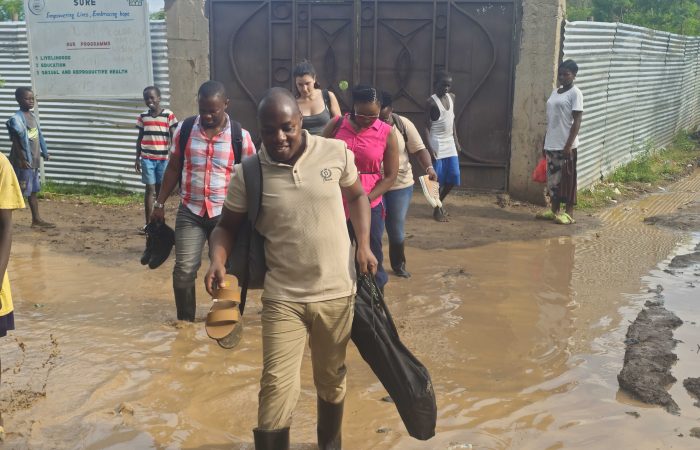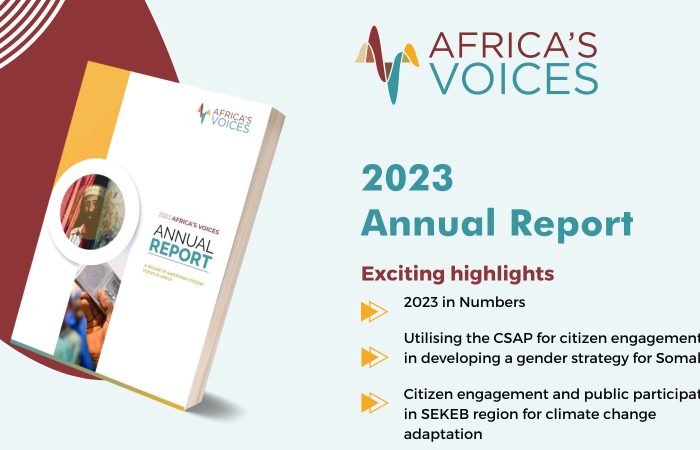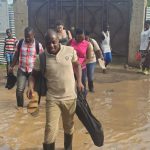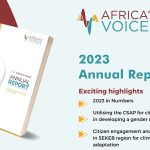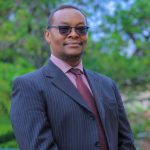With roots in the University of Cambridge, we remain engaged in the institution’s research into the African continent. Around the time that Africa’s Voices was formally launched as an independent organisation, Sharath Srinivasan spoke at the Cambridge-Africa Day – an event that celebrates links between the university and Africa.
During the presentation (in the video above), Sharath explains that Africa’s Voices emerged from “a unique combination of Cambridge research, innovation around technology, entrepreneurship and very different disciplines.” and shared the ideas that Africa’s Voices was founded on.
What’s the political significance of new communications in Africa?
A phenomenon of real interest for the Centre of the Governance and Human Rights, from where Africa’s Voices was born, is:
“The growing way in which connectivity around mobile communications, and other communications, as well as new spaces that have opened up in the last twenty years (the liberalisation of media across many African countries – not all) has allowed for discussion and debate of issues in very vibrant and dynamic forms on local language radio stations, TV stations.”
“The political significance of this new discussion and debate is that there is a new connective tissue of a body politic that emerges in new forms – and that can have a significance because of the power of public opinion. But also the ability of this diversity of richness social discussions to be tapped into and connected across many countries.”
The challenge of amplifying voices
 Sharath continues to explain the Africa’s Voices pilot project, when we worked with radio stations in eight sub-Saharan African countries. Radio presenters asked a set of questions, which they collectively decided upon. Audience members could text in their opinions, which were analysed by our team in Cambridge. Results were shared with the radio stations so they could share with their audience, and compare opinions between communities and countries.
Sharath continues to explain the Africa’s Voices pilot project, when we worked with radio stations in eight sub-Saharan African countries. Radio presenters asked a set of questions, which they collectively decided upon. Audience members could text in their opinions, which were analysed by our team in Cambridge. Results were shared with the radio stations so they could share with their audience, and compare opinions between communities and countries.
The bigger agenda of the pilot was,
“a desire to amplify and elevate the voice of Africans in all their diversity to the levels of development and governance debates. We can think of the future of the Millennium Development Goals, one of the big bones of contention was how lacking in real understandings of people’s priorities the original goals were.
“Participation and consultation are easily bandied about. But some of what we’re interested in is this bigger challenge of being able to amplify at higher scales this voices that are very local and granular.”
Less representative, more real
In the presentation, Sharath boils down some of the main learnings of the pilot study, including that:
“Interactive shows have a very wide listenership, such that even if participation is often skewed (more male, more educated, etc.) you’re talking about a space that matters anyway. So understanding the ideas that emerge in this space is about also understanding particular kinds of social influence. So this is not random and representative samples, but something that’s much more real – whether we like it or not.”
“The other thing we found is that successful interactive shows were really about engagement: the way presenters invited and encourage audiences to engage and let them speak exactly what was on their mind – not reduce them to a yes/no question or a/b/c/d answer. And also allow them to say who they were and greet a family member, which often happens on these local radio shows.
How best to tap into interactive shows?
From the findings of the research project, Sharath explains how best to capture local voices as they interact in media forums.
“So you have this really interesting space that’s full of possible rich insights, but it needs to be tapped into in certain ways that require a combination of particular expertise and skills.
You have to understand the social and media context very well. You have to get the technology right to work in quite difficult and challenging settings. You have to think, on a theoretical level, quite radically different about what public opinion is when you release it and free it from the idea that it’s a distribution of individuated points on an artificial engagement through a survey questionnaire. And you have to combine humans and machines and the relative expertise they have, to explore, to discover and then to analyse.”
Africa’s Voices tools and expertise fulfil these requirements for effectively gathering insights into interactive discussions. After the pilot research, we developed an innovative citizen engagement platform that helps organisations hear the local, diverse voices of African countries.
Listen to Sharath’s talk in its entirety in the video above, and hear about the ideas that have fed Africa’s Voices platform and approach.
